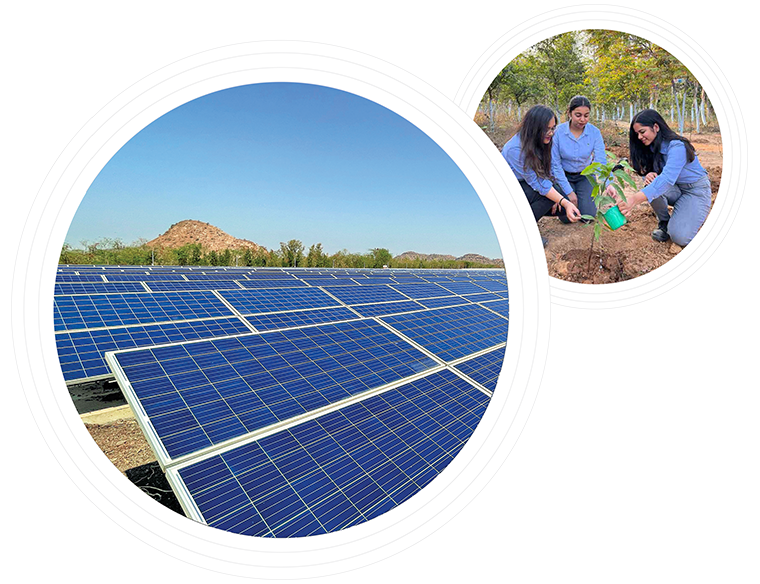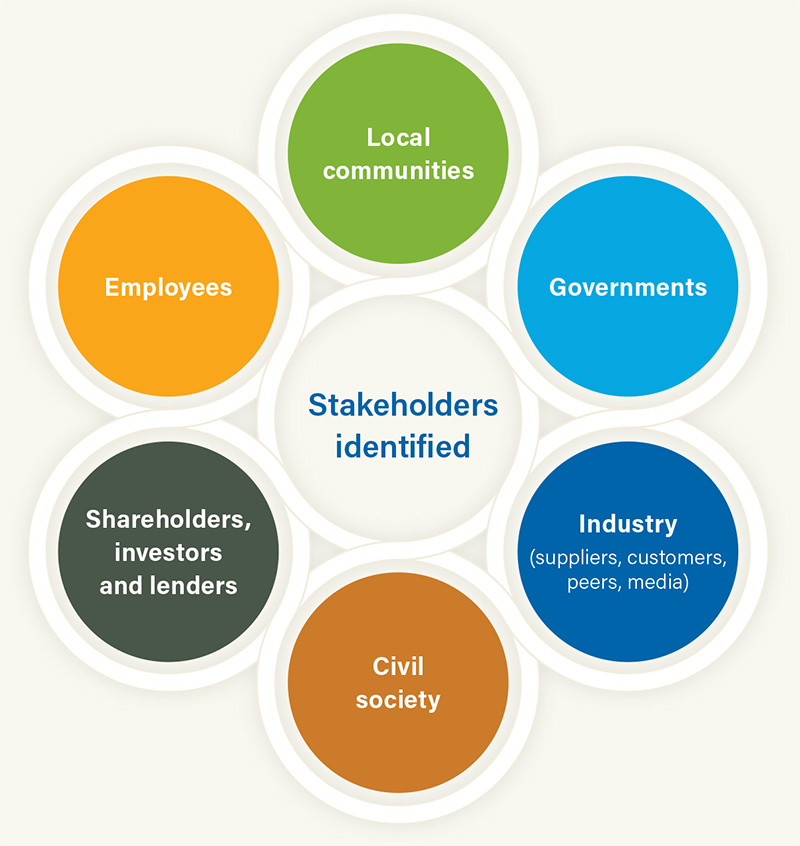Materiality assessment
To align our priorities and actions towards the new ESG purpose, we refreshed our materiality assessment in FY2022 through a detailed peer benchmarking exercise and limited stakeholder consultations. The results of this assessment have been considered while adopting the three pillars and nine aims of the ‘Transforming for Good’ ESG framework.


Top material topics
The top priorities across E, S and G have
been identified in the table. Additional topics
included as per this year’s assessment include
risk management, economic performance,
freedom of association and collective
bargaining and data privacy and cybersecurity.
High
Climate Change and decarbonisation
Workplace health, safety and wellbeing
Tailings management
Biodiversity
Air quality and emissions management
Solid waste management
Water management
Community relations
Compliance to government regulations
Indigenous people and cultural heritage
Ethical business practices
Diversity and equal opportunity
Supply chain sustainability
Risk management
Medium
Transparent disclosure
Learning & Development
Innovation
Governance for sustainability
Land acquisition, rehabilitation and closure
Pandemic response and preparedness
Talent attraction and retention
Freedom of association and collective bargaining
Low
Materials management
Circular economy
Data privacy and cybersecurity
The materiality assessment process is in line with Global Reporting Initiative (GRI) standards. The additional topics included as per this year’s revision include risk management, economic performance, freedom of association and collective bargaining, and data privacy and cybersecurity. This revision was carried out by management review by the Group Executive Committee (ExCO).
We will be undertaking an extensive materiality assessment in FY2023 in alignment with the updated GRI Universal Standards protocols.